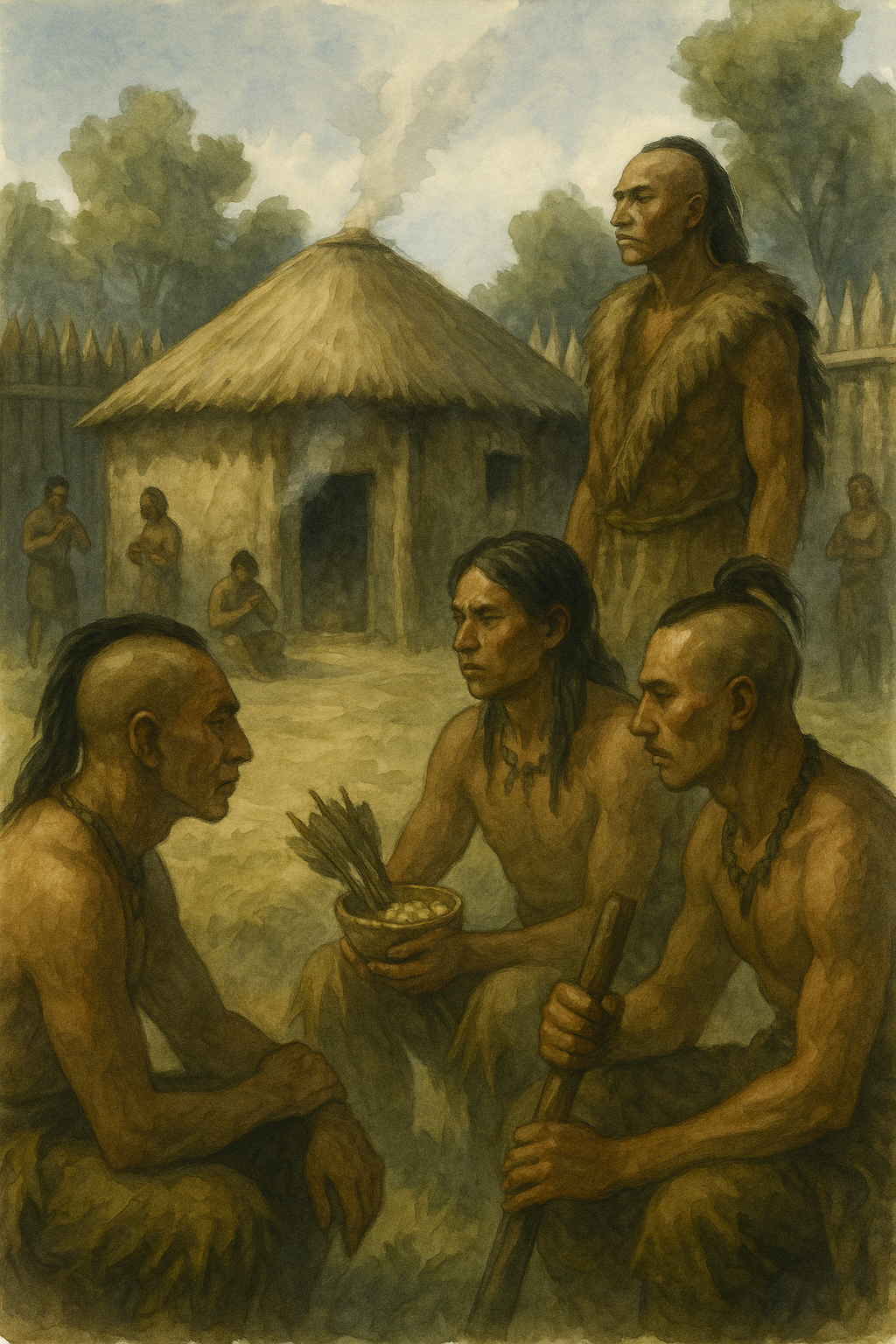
Lazyguys Presents
The Hunt:
Challenge Series
Road to Chicaza: Challenge #14
2 Points
1 Guess Limit
“Chicaza Holds Its Breath”
Chickasaw Territory - October, 1540
Each moment of this day stretches longer than the last, as if the whole world has paused, caught in the terrible space between one breath and the next. Every Chickasaw, from the oldest Mingo in the council house to the youngest child kept close by its mother’s side, knows that this day is not like other days. The Shining Ones are at Mabila. What unfolds there, under this same sky that covers our own Chicaza, will send ripples through the forests and rivers that could reshape our lives forever.
The usual sounds of our town are muted. The cheerful shouts of children at play are hushed; the rhythmic beat of the corn pounder is softer, more deliberate. Instead, one hears the whisper of whetstones on flint arrowheads, the low murmur of warriors checking their bowstrings, the almost silent prayers of the women as they ensure our emergency stores are secure. My own hands have fletched more arrows this past moon than in all the seasons before, each feather set with a prayer to the spirits of the air for true flight.
Our scouts, the best among us, have been shadows in the southern lands for weeks. The reports they’ve sent back, often carried by runners pushed to the limits of their endurance, have painted a fearsome picture: men who wear the sun’s glint like a second skin, riding upon beasts that are neither deer nor elk, but larger and more terrible. They speak with fire and hurl thunder. They demand endless tribute – food, bearers, women – and leave desolation where their demands are not met. Even the great Tuskaloosa, whose name once brought silence to any council, now walks as their captive, his pride a smoldering ember.
The Great Council has been in session for what seems like an eternity. The smoke from their fire has never ceased, a constant, thin reminder of the grave deliberations within. We, the younger warriors, gather in respectful silence outside, catching only fragments of words – “palisades,” “ambush,” “the river crossings,” “if Mabila falls…” Each phrase is a stone dropped into the deep well of our uncertainty. There is no fear that paralyzes, not among the Chickasaw. But there is a cold, hard understanding of what stands at the threshold of our world. We have faced enemies before, fierce nations from the north, cunning raiders from the west. We have never faced men who shine, who ride monsters, who kill with angry fire from afar.
The charged stillness of Chicaza persists through this long, watchful day, a heavy blanket over the usual hum of our town. Only the solid thud of a warrior’s practice war club against a seasoned oak post, or the restless whining of a village dog sensing the unquiet air, occasionally breaks the silence that seems to listen southward. Every rustle in the forest canopy beyond the palisades, every unexpected cry of a hawk circling high above, draws our gaze. Is it a sign? A runner, at last, from Mabila, bearing news of triumph or disaster? Or is it merely the land itself, sighing under the weight of this shared suspense? We do not know. We only know that Chicaza holds its breath.
In the text, which of the following is NOT offered as a possible omen or sign of news from Mabila?
A) A rustle in the forest canopy
B) The cry of a hawk
C) A broken arrow on the path
D) A runner’s arrival


